




bioplastic materialisation
"Bioplastics or biopolymers are substances that are composed of renewable organic biomass sources, such as starch, cellulose or sugar. Because of their biological origin, they are inherently biodegradable, which means that they can easily be broken down into CO2, water, energy, and cell mass with the aid of microbes, rendering them largely carbon neutral. On top of their ecological advantages to standard plastics, which are largely derived from petrochemicals and can take hundreds of years to degrade, they help to conserve fossil raw materials and the dependency on mineral oil. Yet bioplastics still have a long way to come until they will be able to seriously compete with their petrochemical rivals. Mostly the two to three times higher cost in production but also the fear of loosing land for the growth of food or accelerated rate of deforestation hinder its economic development. Similar concerns exist over its impact on water supply and soil erosion. Since the building and construction industry is among the largest consumers of plastics, the potential of less pollutant plastic alternatives is fairly obvious. However the biodegradability of bioplastic poses a major problem and currently results in applications mainly reduced to the interior or of temporary character."
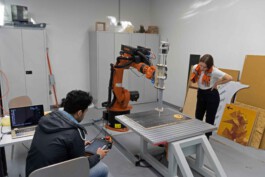
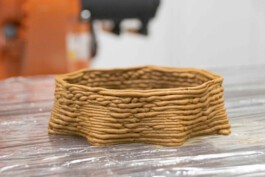
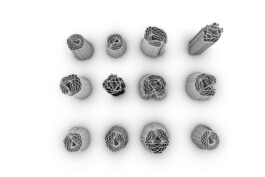
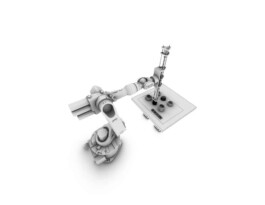
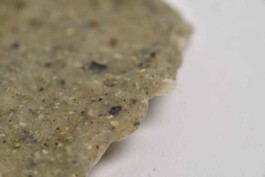
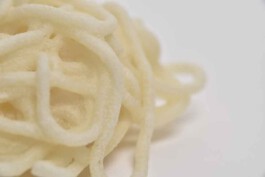
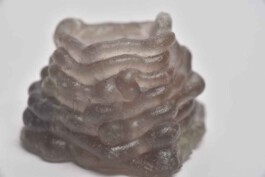
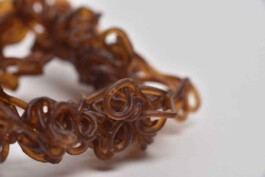
Bioplastic Materialisation was a group project with the DIA Graduate School of Architecture in which we experimented with self-produced bio-materials until we achieved a consistency that could be printed three-dimensionally with a KUKA Industrial Robot.
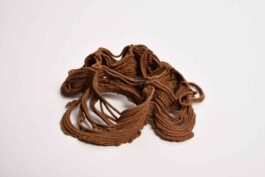
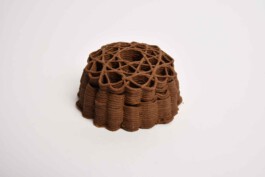
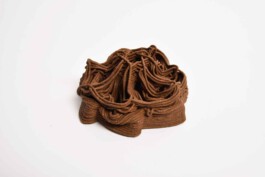
Narrative
For the future scenario it was questioned what a funeral might look like in around 50 years. Everyone is confronted with loss sooner or later in life. Having to let a loved one go is one of the most difficult steps we have to take. In Germany, the regulations and guidelines for a funeral are strictly standardised. With a few exceptions, the bereaved are given little room for manoeuvre for their individual farewell. And there is particularly little time to plan or reconsider decisions.
In order to open up this space, the concept envisages the creation of a personal memorial object based on photographs (hypothetically collected over a lifetime).
Based on the idea of the life cycle, the design began from the top view - by mapping the course of the 3D print based on the analysed data according to the various legible emotions and moods of the person depicted. This gradually transforms the basic shape of a circle into a complex arrangement of overlapping patterns.
In terms of production technology, the group focussed on experimental 3D printing. The production and material research in this project show the promising potential of bioplastics for additive manufacturing.
Luise was involved in the process of material exploration and developed the design concept.
Institute: Dessau Department of Design & Dessau Institute of Architecture
Students: Luise Eva Maria Oppelt, Martin Naumann, Julia Ziener, Adib Khaeez, Kamal Amgad, Jason Hage
Supervision: Prof. Dr. Sc. Manuel Kretzer, Sina Mostafavi
Assistants: Mohammed Saad Moharram, Arise Wan
Robotic Workshop Support: Carl Buchmann
Project Date: 2018
Contact Imprint Privacy Policy
© 2023 levm | Luise Eva Maria Oppelt